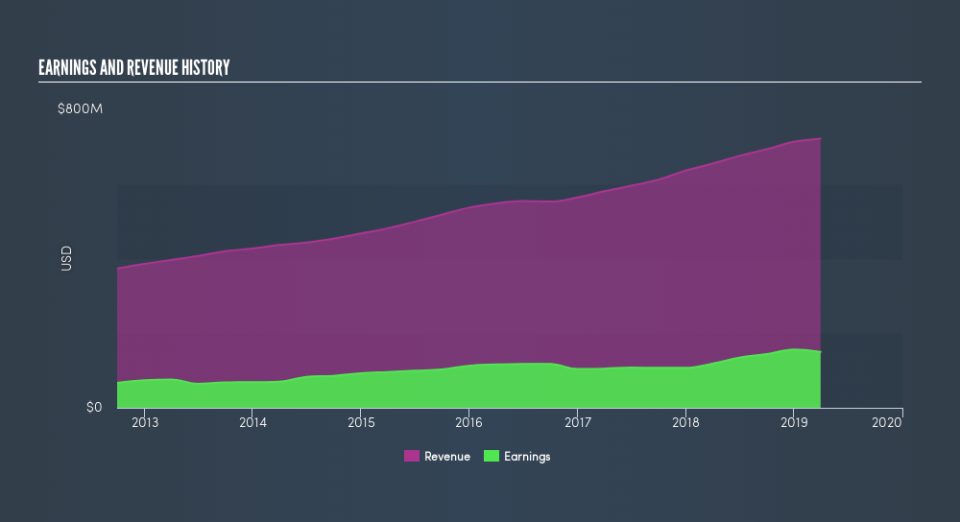Does Globus Medical, Inc. (NYSE:GMED) Have A Particularly Volatile Share Price?

Want to participate in a short research study? Help shape the future of investing tools and you could win a $250 gift card!
If you own shares in Globus Medical, Inc. (NYSE:GMED) then it's worth thinking about how it contributes to the volatility of your portfolio, overall. In finance, Beta is a measure of volatility. Volatility is considered to be a measure of risk in modern finance theory. Investors may think of volatility as falling into two main categories. The first category is company specific volatility. This can be dealt with by limiting your exposure to any particular stock. The second sort is caused by the natural volatility of markets, overall. For example, certain macroeconomic events will impact (virtually) all stocks on the market.
Some stocks are more sensitive to general market forces than others. Beta is a widely used metric to measure a stock's exposure to market risk (volatility). Before we go on, it's worth noting that Warren Buffett pointed out in his 2014 letter to shareholders that 'volatility is far from synonymous with risk.' Having said that, beta can still be rather useful. The first thing to understand about beta is that the beta of the overall market is one. A stock with a beta greater than one is more sensitive to broader market movements than a stock with a beta of less than one.
View our latest analysis for Globus Medical
What does GMED's beta value mean to investors?
Given that it has a beta of 0.90, we can surmise that the Globus Medical share price has not been strongly impacted by broader market volatility (over the last 5 years). If history is a good guide, owning the stock should help ensure that your portfolio is not overly sensitive to market volatility. Many would argue that beta is useful in position sizing, but fundamental metrics such as revenue and earnings are more important overall. You can see Globus Medical's revenue and earnings in the image below.
Does GMED's size influence the expected beta?
Globus Medical is a reasonably big company, with a market capitalisation of US$4.1b. Most companies this size are actively traded with decent volumes of shares changing hands each day. When large companies like this one have a low beta value, there is usually some other factor that is having an outsized impact on the share price. For example, a business with significant fixed regulated assets might earn a reasonably predictable return, regardless of broader macroeconomic factors. Alternatively, lumpy earnings might mean minimal share price correlation with the broader market.
What this means for you:
Since Globus Medical is not heavily influenced by market moves, its share price is probably far more dependend on company specific developments. It could pay to take a closer look at metrics such as revenue growth, earnings growth, and debt. In order to fully understand whether GMED is a good investment for you, we also need to consider important company-specific fundamentals such as Globus Medical’s financial health and performance track record. I highly recommend you dive deeper by considering the following:
Future Outlook: What are well-informed industry analysts predicting for GMED’s future growth? Take a look at our free research report of analyst consensus for GMED’s outlook.
Past Track Record: Has GMED been consistently performing well irrespective of the ups and downs in the market? Go into more detail in the past performance analysis and take a look at the free visual representations of GMED's historicals for more clarity.
Other Interesting Stocks: It's worth checking to see how GMED measures up against other companies on valuation. You could start with this free list of prospective options.
We aim to bring you long-term focused research analysis driven by fundamental data. Note that our analysis may not factor in the latest price-sensitive company announcements or qualitative material.
If you spot an error that warrants correction, please contact the editor at editorial-team@simplywallst.com. This article by Simply Wall St is general in nature. It does not constitute a recommendation to buy or sell any stock, and does not take account of your objectives, or your financial situation. Simply Wall St has no position in the stocks mentioned. Thank you for reading.

 Yahoo Finance
Yahoo Finance 
